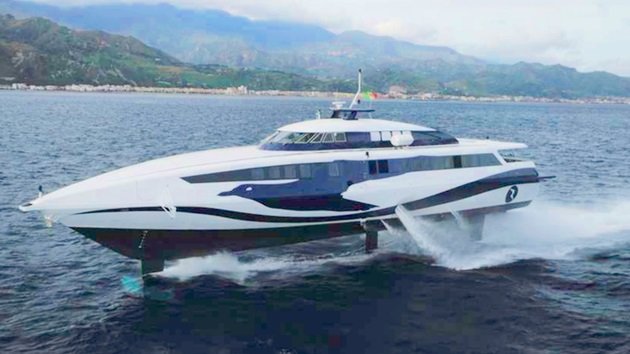The thought of modern sea travel without the use of hydraulic systems is inconceivable. When it comes to using hydraulic systems on boats in the maritime industry, there are many useful applications that they can be used for. Hydraulic systems are known to be capable of lifting and moving around large weights very smoothly. Thanks to this, you’ll find a wealth of different hydraulic systems on all types of vessels across the world.

We’ll be taking you through some of the common marine applications of hydraulic systems currently being used onboard boats and the importance of maintaining them.
Several applications
First, here are a few examples of the common applications for hydraulic systems in the maritime industry:
- Rotary operation of pitch propellers
- Rotary and linear operation of stabiliser and steering machines
- Rotary operation of stern and bow thrusters
- Rotary operation of winches, which are typically anchor or mooring ones
- Platforms and gangplanks
Let’s now go into further detail on some of the specific components that utilise hydraulic systems on different vessels.
Rudder Systems
On any given vessel, achieving a high level of maneuverability is essential, allowing you to navigate safely and efficiently across the water. Hydraulic components are used as part of the process in making sure the rudder system of the boat operates smoothly.
In order to enable monitoring of the position and functioning of the rudder at any given time, there is the need for proportional valves with integrated switch position monitoring. Hydraulic cylinders are also necessary in order to provide the necessary steering power.
Winches
Different ships may require a range of varying winches onboard. For example, anchor and mooring winches, cranes, deep-sea winches and fishery winches all require specific hydraulic solutions. There are also modern winches which are built for swell compensation, which are necessary for boats that are often voyaging on rougher areas of the sea.
One particular pump which has been used for over 20 years in the maritime industry all over the globe is the A10VSO open circuit swashplate pump, proving itself as an essential component of hydraulic winch systems.
Many compact hydraulic winches can be installed in a small area on vessels and will be able to be load-independent with infinite controllability.
Stabilisers
The comfort and stability for vessels such as cruise ships are highly important for the comfort of those on board. The fins underneath the boat help to reduce the amount of rolling action on the ships. These stabiliser fins work under high hydraulic oil pressure, helping to provide resistance against rolling and making life on the vessel much more enjoyable.
Hydraulics for Specialty Environments
Particular vessels may find themselves in more extreme environments or need machinery that is capable of operating in the deep sea or freezing conditions. Hydraulic valves and systems designed for the maritime industry offer protection against the corrosive effects of seawater. The use of specialised seawater-resistant steel or brass in some circumstances is key in the construction process for these components.
Contamination of Hydraulic Systems
Although many people might think that a leak is the largest problem that you might experience with a hydraulic system. However, the problem that you need to be most wary about is the contamination of fluid used in the hydraulic system. On vessels around the world, contamination has the potential to occur in the installation process or when undertaking a filter change.
Workers on these boats must be careful to avoid contamination at all costs when they’re working on the inside of the hydraulic system.
Maintaining Hydraulic Components
One of the key aspects in ensuring that your hydraulic components are in top operating condition is by having a coherent maintenance plan in place. Not only does this ensure that you are getting the most out of your systems, but it also helps to cut down on downtime and help to boost productivity on board the boats they’re found on. Hydraulic systems maintenance should be done by a licensed professional to help you prolong the life of your components where possible.
The great thing is that if you have correctly installed and conditioned your hydraulic system, they shouldn’t need a large amount of maintenance. Keeping your hydraulic systems clean onboard the vessel is extremely important. You’ll need to make sure that the oil is free of impurities and the system is cleaned during repair jobs.
Hydraulic systems will continue to be hugely important for the maritime industry and offer vessels of all sizes great benefits in their operation.




